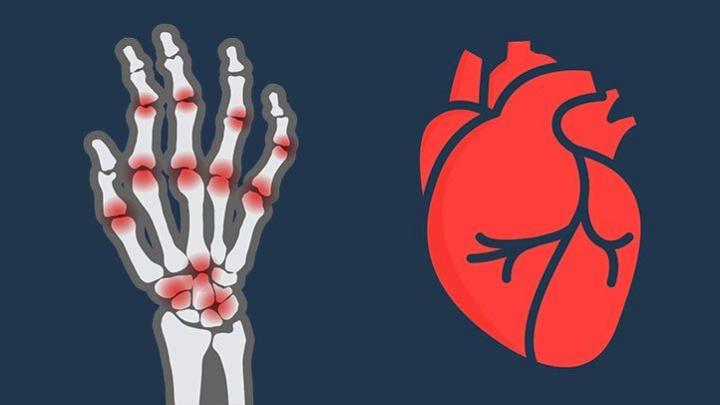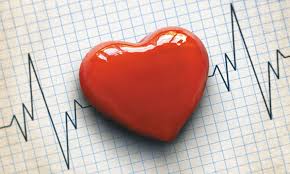Individuals who suffer from RA have an increased likelihood of acquiring a variety of other inflammatory disorders, the most common of which is heart disease, which is also the major cause of heart failure. In this article, you will learn about the link between rheumatoid arthritis and heart failure, as well as the steps that individuals with RA may take to reduce their risk of developing heart difficulties.
What The Research Says
There are many different ways in which inflammation may be harmful to your health. Chronic inflammation, which means it lasts for a lengthy period, may lead to a wide range of health concerns and difficulties. Inflammation over a long period has been related to the development of cardiovascular diseases such as coronary artery disease and heart failure. Those who have RA have a higher risk of dying from heart disease than the general population. Your likelihood of developing heart disease is even higher if your RA is severe or its symptoms are not well managed.
Inflammation seems to be localized exclusively in the joints of people with RA; nevertheless, this inflammation affects the whole body of these individuals. According to studies, a greater level of C-reactive protein, which is a sign of inflammation in the circulation, has been related to a higher risk of heart disease in those who have RA.
The risk of heart failure in patients with RA was almost twice as high as in the general population, as shown by an analysis of data including more than 5 million participants. It seems that women who have RA are more likely to have heart failure. According to the study findings, which classified the participants as either "men" or "women," the risk of heart failure in women with RA was three times higher than in women without RA.
Heart Failure Risk Factors
A critical cardiac ailment known as heart failure occurs when the heart cannot pump blood effectively enough to fulfill the body's needs. Heart failure may be fatal. Sudden onset of heart failure is possible in some circumstances, such as when a heart attack has injured the heart muscle. Nonetheless, it often comes on gradually over time.

Most of the time, heart failure is the consequence of a chronic ailment, such as coronary artery disease. Inflammation is not the only factor that may raise your chance of having heart failure if you have RA. Additional potential dangers include the following:
- Smoking
- Metabolic syndrome
- Obesity
- Genetics
- High cholesterol
- High blood pressure
Warning Signs And Symptoms To Watch Out For
Those with RA have a higher chance of developing cardiac issues as time passes. Your condition, if properly managed, may help minimize your chance of developing heart disease and heart failure. This indicates that having a strong working relationship with your treating physician or other healthcare experts is critical to managing your RA effectively.
You must pay attention to your symptoms to be able to get assistance if your RA worsens. The following are some symptoms that might indicate that your RA is producing more inflammation than it used to:
- Discomfort that is becoming worse in one or more joints
- Anomalies in the shape of your hands or feet
- Pain and edema, as well as a reduction in joint function
- The development of increased stiffness in one or more joints
- Nodules beneath your skin, low-grade fever, tiredness weakness
Cardiac Symptoms
Individuals who suffer from RA have an elevated chance of developing heart disease. Heart disease almost often comes first in the progression of heart failure. See a physician immediately if you notice any signs and symptoms associated with heart disease. There is more than one therapy available for this condition. Some of the symptoms to watch out for are:

- Ache or discomfort in the chest
- A sensation of pressure or constriction in the chest, shortness of breath, nausea, and/or vomiting
- Symptoms of indigestion or gas
There are several subtypes and levels of severity that may be experienced in heart failure. Your symptoms may differ depending on which side of your heart is most damaged, whether the left or the right, and what other health issues you may be dealing with simultaneously.
Reducing The Risk Of Heart Failure And Other Cardiovascular Issues
You should collaborate closely with a physician, such as a rheumatologist, to reduce your likelihood of developing heart disease and heart failure. Treating your RA will assist in reducing chronic inflammation and reduce the likelihood that you may develop cardiac issues. Medicines such as the following are used to treat rheumatoid arthritis (RA) and reduce inflammation:
- Disease-modifying antirheumatic drugs
- Biologics
- Janus kinase inhibitors
- NSAIDs
- Corticosteroids












